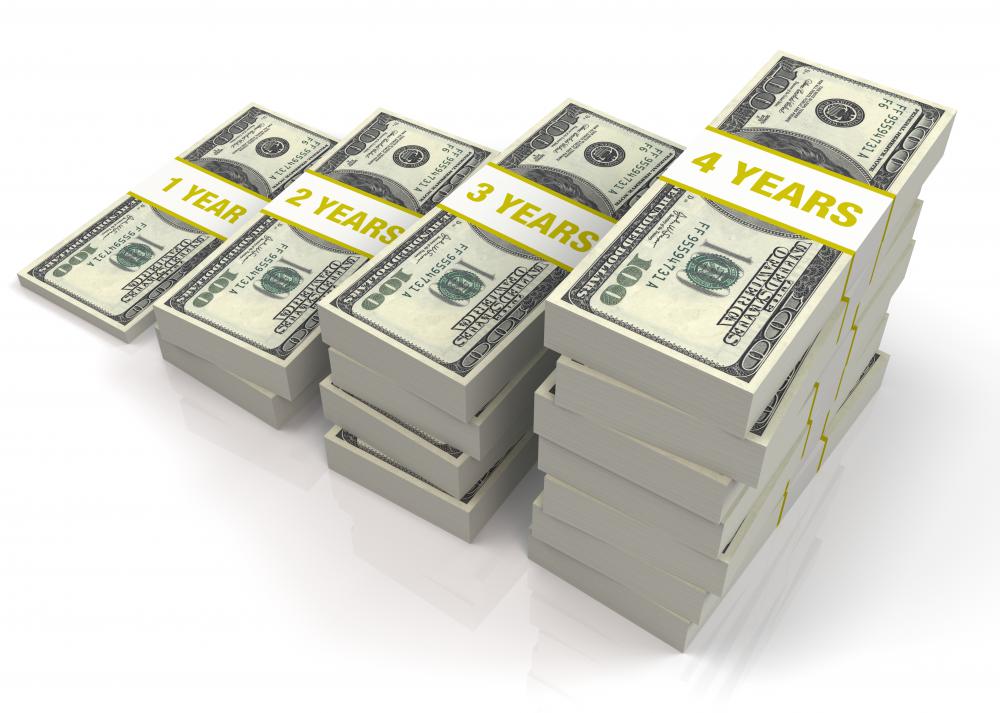At WiseGEEK, we're committed to delivering accurate, trustworthy information. Our expert-authored content is rigorously fact-checked and sourced from credible authorities. Discover how we uphold the highest standards in providing you with reliable knowledge.
What is Near Money?
Near money is a term used to refer to highly liquid assets. These are non-cash assets which can quickly be converted into cash with little or no loss of value. They are often also referred to as quasi-money. Near money can sometimes be taken into account when assessing the money supply of a country which can play a role in the health of its economy.
Exactly which assets are classed as near money varies depending on who is using the term. This is because what counts as "near" depends on how much leeway is allowed for the time delays or costs of converting an asset to cash. Arguably the only asset which can be converted without time or cost penalties is money in an instant access bank account. Holdings of foreign currencies follow closely behind, as it is usually possible to convert them to domestic currency almost instantly, though there will usually be a transaction fee.

Assets which are nearly always classed as near money include government or treasury securities such as bills; this is because they are very reliable and are almost guaranteed to find a buyer. Money funds are another example as, although they are based on debt securities, they are designed to be very liquid. Money put into a bank on a fixed-term basis can also be counted, though this may be restricted to deposits which are on terms set to end imminently. In different countries these deposits are known as certificates of deposit, bonds, time deposit and term deposits.

Other types of assets which are liquid in practical terms are not classed as near money. The most common example of this is company stocks. Although most stocks can be converted to cash without much trouble in reality, this is not guaranteed as stocks can and do go through periods where there are few would-be buyers. It's also difficult to put a long-term value on a stock as its price can vary over time. This is in contrast to most types of near money, where the value is either fixed or does not vary significantly.
Near money can have a significant effect on an economy, second only to extra cash. This is partly because it can easily be converted to cash, thus increasing the money supply. Another reason is that savings held in highly liquid form are much more likely to be spent than those tied up in long-term savings which can't be accessed without delay or penalty.
AS FEATURED ON:
AS FEATURED ON:












Discussion Comments
@Cafe41 - I understand what you are saying, but I think that over the long haul stocks are better to hold than money market accounts or Treasury Bills.
Historically the stock market has been the leading investment on a long term basis. So I personally would prefer stocks. I understand that there will be dips in the market and I can also sell my stocks if I need the cash for anything.
I know that many people also like real estate, but unlike near money products, real estate is not liquid and we all know what a hard time people are having selling their homes. With stocks, I can always have a money transfer from one account into another.
I think that people consider liquidating their near money type of accounts When they are worried about the economy and want to feel safer. Although the money market rates in most banks are really low, some people feel more secure knowing that they have cash in the bank rather than a series of stocks.
I know that I feel better having money in the bank. I always try to keep at least six months of expenses in my savings account, and I know many people that keep more. I think that when the economy turns around people will be bolder with their money and take more chances.
Post your comments